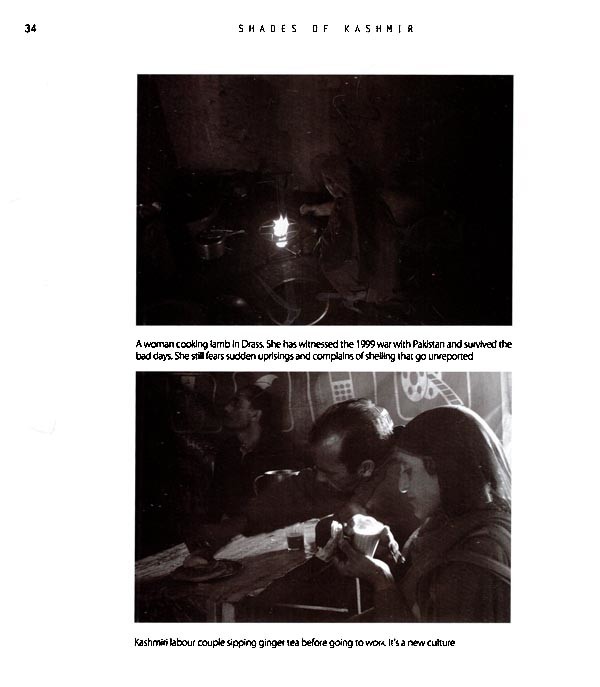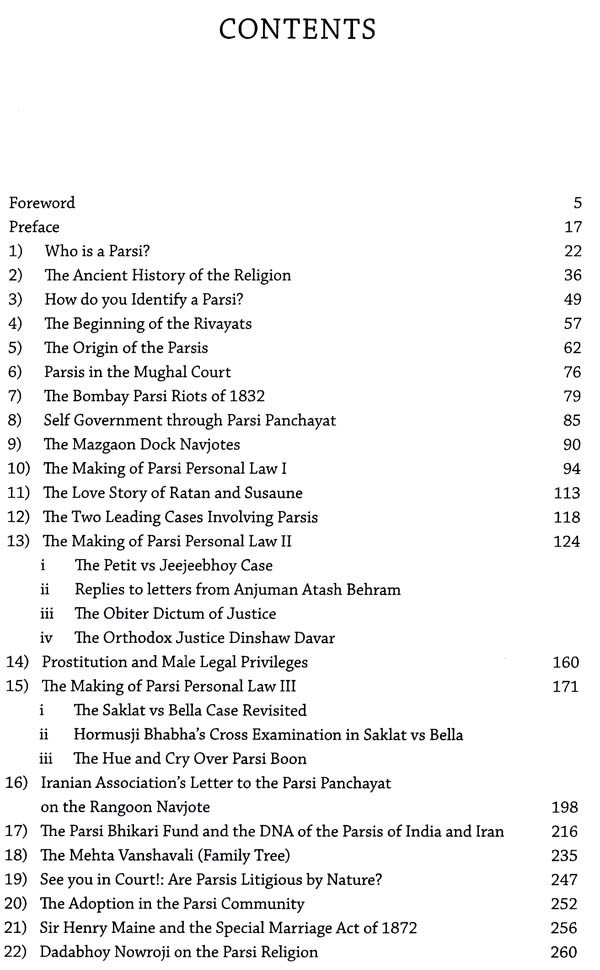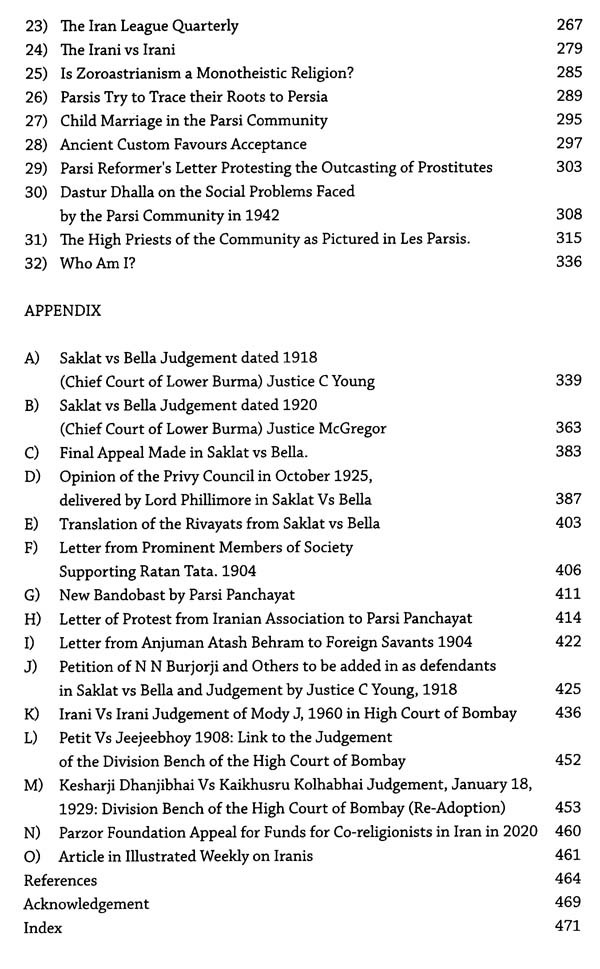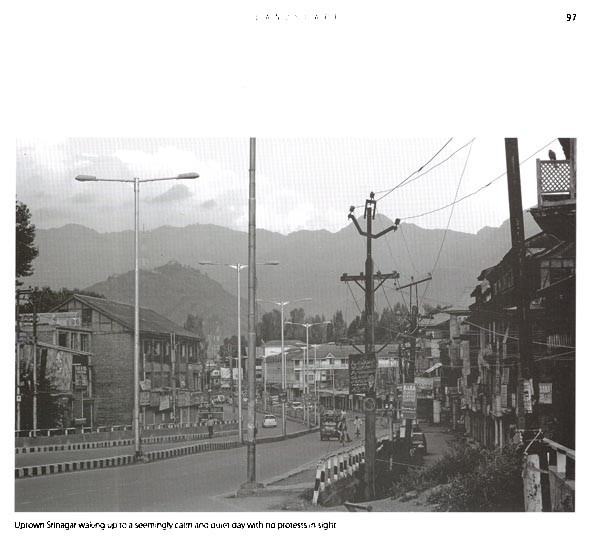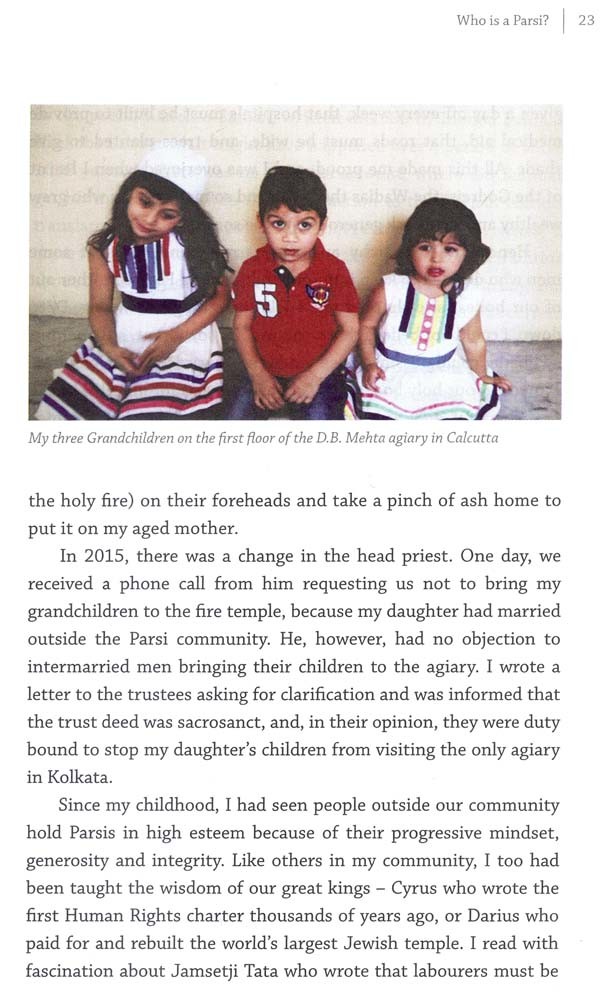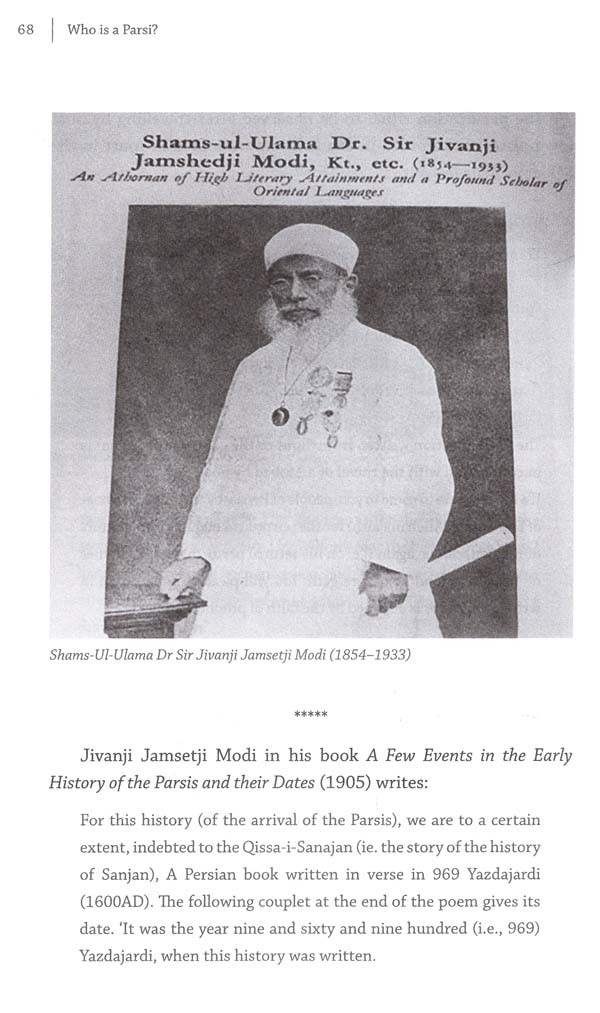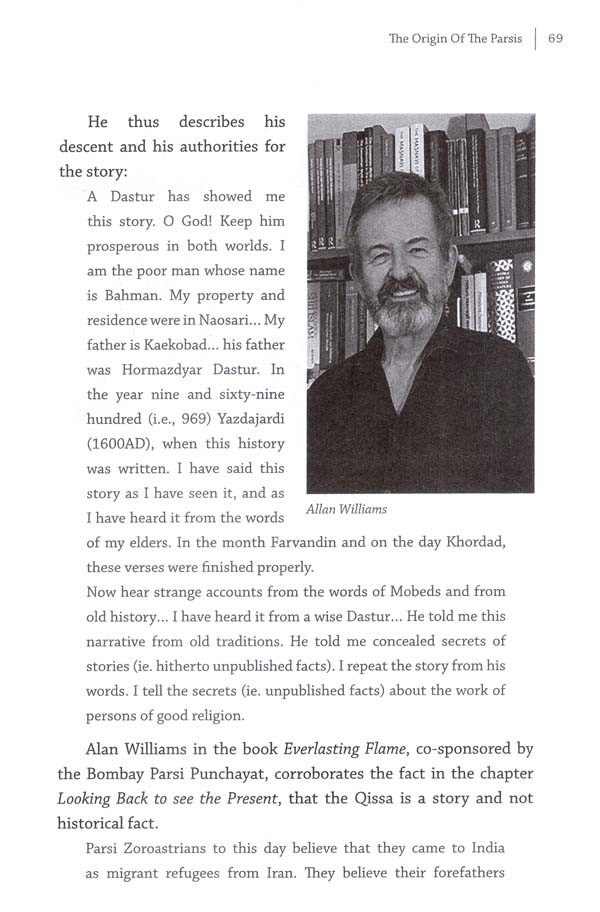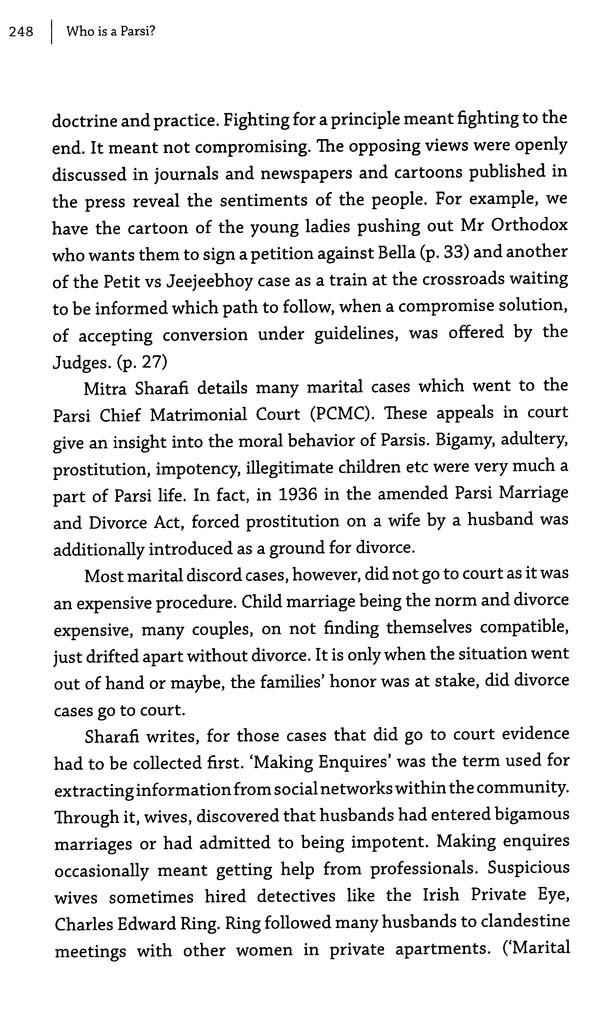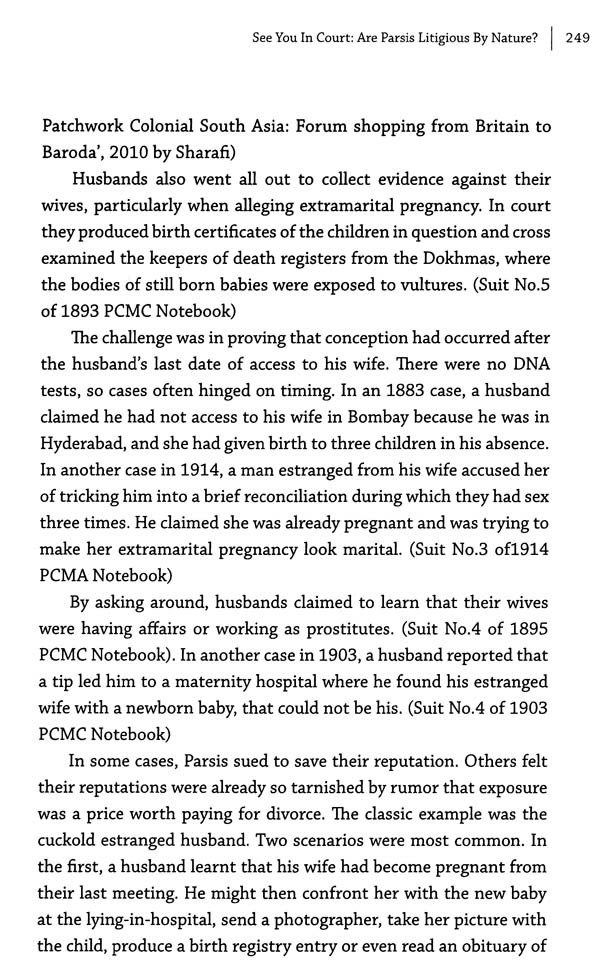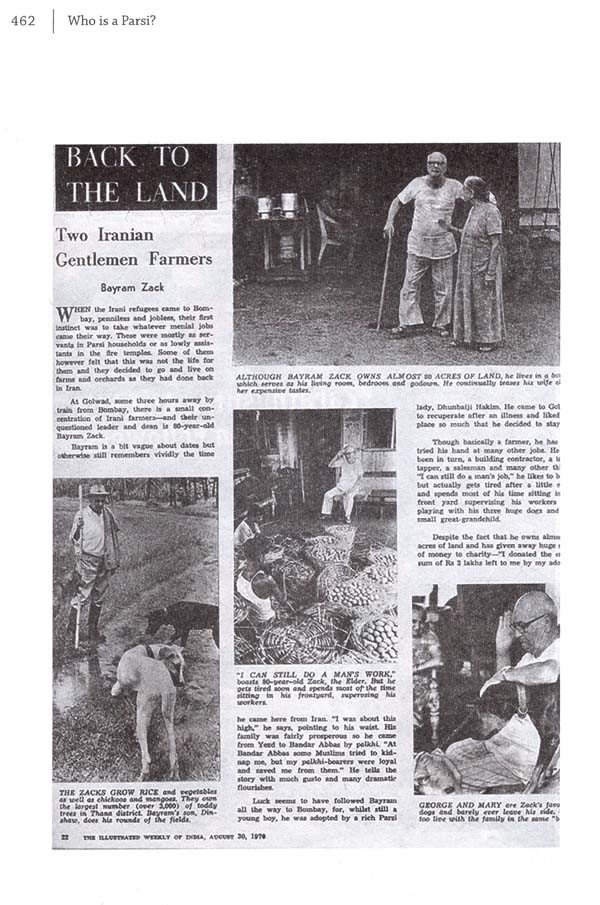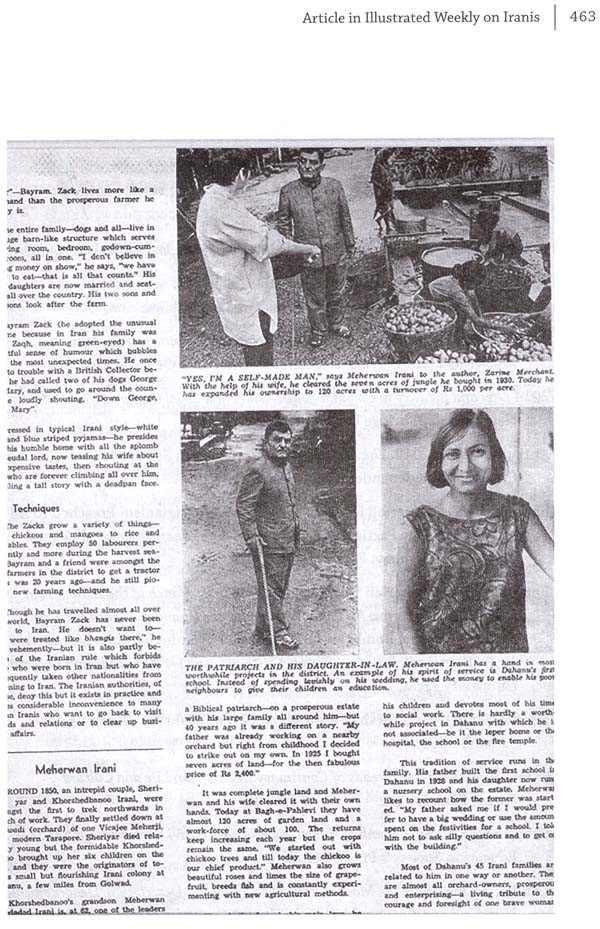
Who is a Parsi ?
Book Specification
| Item Code: | AZE862 |
| Author: | Prochy N. Mehta |
| Publisher: | Niyogi Books |
| Language: | ENGLISH |
| Edition: | 2022 |
| ISBN: | 9789391125776 |
| Pages: | 488 (Throughout B/w Illustrations) |
| Cover: | HARDCOVER |
| Other Details | 9.50x6.50 inch |
| Weight | 750 gm |
Book Description
The author depicts the dichotomy of the community in the 20th century, between the orthodox and the reformist groups and explains the anomaly of how the reformists who followed the original Mazdayasna or Parsi religion, constituted the real orthodoxy. It was a reform movement led by the high priests of the community and the most influential members of society, for a return to the pristine purity of the original Zoroastrian Religion. This book documents, through letters, articles in the newspapers, and transcripts from court cases, the views of those brave men, Dadabhoy Navroji, Ratan D. Tata, Ratan J. Tata, Sir Dinshaw Maneckji Petit, Sir Jehangir Cawasjee Jehangir, Rustumji Byramji Jeejeebhoy, Homi J. Bhabha, K.R. Cama, and many others who had the courage to stand up and fight for what they believed in, that Parsi and Zoroastrian meant the same thing. This book too uses the two terms Parsis and Zoroastrians synonymously. As warranted by the detailed final judgment of the Bombay High Court, in the contested case of Irani vs. Irani (1960): Chapter 24.
And finally: Lewis Carroll- author of Alice in Wonderland - tells us: 'what a comfort a dictionary is': since it is that which gives us a list of words of a language in alphabetical order and explains what they mean. The (authoritative) Shorter Oxford English Dictionary explains what the word 'Parsee' (so spelt) means: 'one of the descendants (i.e., "one who is descended from an ancestor or an issue in any degree") of those Persians who fled to India in the 7th and 8th centuries to escape Moslem persecution and who still retain their religion (ZORASTRIANISM). The Shorter Oxford, be it noted, does not confine the definition to patrilineal descent alone.
Cover image: Illustrations in the Hindu Punch magazine referring to the Petit vs Jeejeebhoy case and the compromise solution suggested by the judges.
When the hero of Shakespeare's tragic play: Hamlet is told that he has to avenge his father's murder (at the hands of his own uncle) he cries out in anguish:
The time is out of joint; O cursed spite! That ever I was born to set it right In Prochy Mehta's view, - for Parsis, the times are definitely out of joint, and she has valiantly strived 'to set it right": not in a spirit of acrimony or confrontation, but by invoking the more pleasurable - art of persuasion.
My research made me realize that the tales we have heard for generations, and what has been handed down to us as history of the Parsi community in India, have often been rather fictitious. The perception, for example, that the Parsis have always been an affluent community, is a modern-day myth devoid of any true value. The story of the arrival of the Parsis in India, the most important chapter in that history, is itself shrouded in mystery.
In the present book, I attempt to set that record straight and lift the veil from the glorious history of our people. I wish to handhold the reader in this journey through the lanes and by-lanes of our history from the time of the writing of the poem Qisaa-i-Sanjan in 1599, when Parsi recorded history actually begins, to the 20th century. Bear with me if I meander sometimes, for its no easy task. It seeks to capture 400 years' history in 300 pages.
**Contents and Sample Pages**
